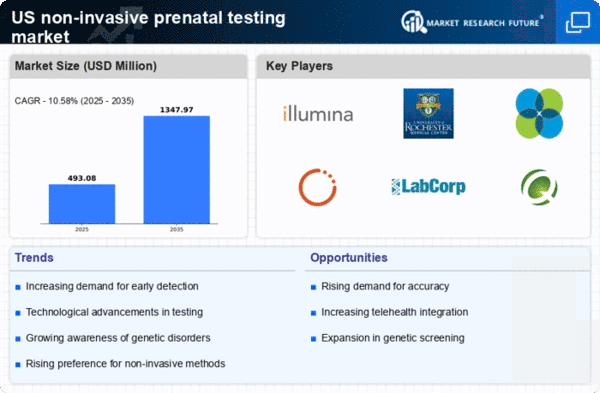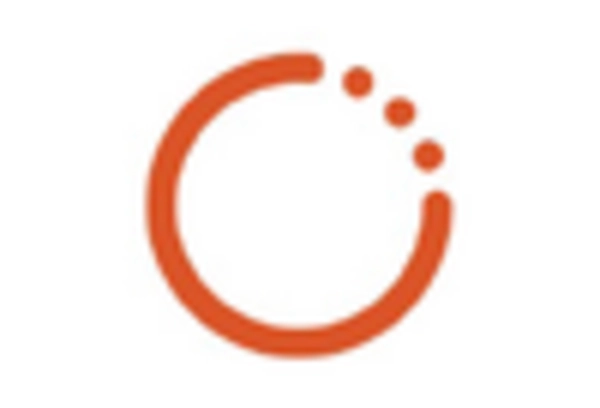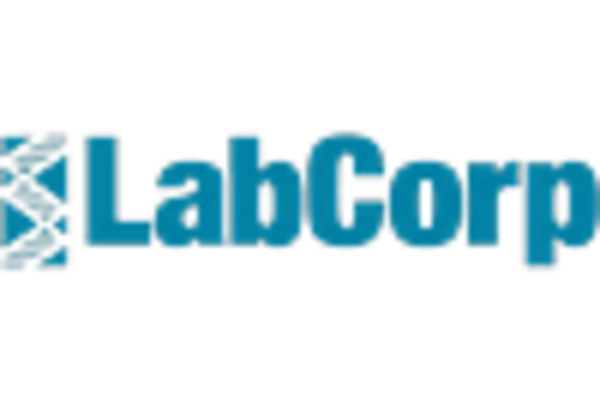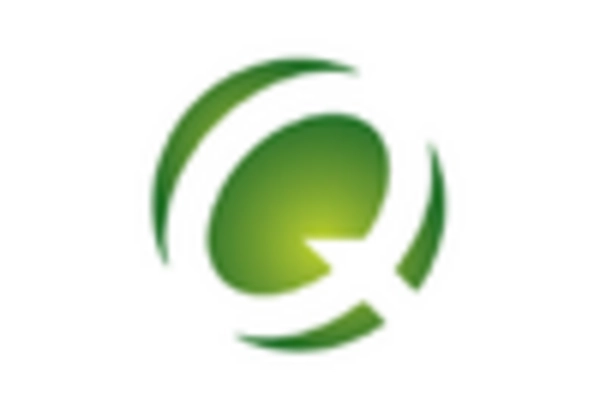Increased Insurance Coverage
The expansion of insurance coverage for non invasive prenatal testing is a significant driver in the market. Many insurance providers are beginning to recognize the value of these tests, leading to increased reimbursement rates. This shift is likely to make non invasive prenatal testing more accessible to a larger segment of the population. As of 2025, approximately 70% of private insurance plans in the US cover these tests, which has contributed to a rise in their utilization. This trend not only enhances the affordability of testing but also encourages expectant parents to opt for these non-invasive methods. Consequently, the non invasive-prenatal-testing market is expected to grow as more individuals take advantage of their insurance benefits.
Growing Focus on Maternal Health
The heightened focus on maternal health and wellness is driving growth in the non invasive-prenatal-testing market. As healthcare systems increasingly prioritize maternal and fetal health, there is a corresponding rise in the promotion of non-invasive testing options. This focus is reflected in various public health initiatives aimed at educating expectant parents about the benefits of prenatal testing. Furthermore, the integration of these tests into routine prenatal care is becoming more common, which may lead to increased adoption rates. The non invasive-prenatal-testing market is thus likely to benefit from this broader emphasis on maternal health, as more parents seek to ensure the well-being of their children.
Rising Demand for Early Detection
The increasing demand for early detection of genetic disorders is a primary driver in the non invasive-prenatal-testing market. Expectant parents are increasingly seeking non-invasive methods to assess the health of their unborn children. This trend is reflected in the market's growth, which is projected to reach approximately $3 billion by 2026. The ability to identify conditions such as Down syndrome and other chromosomal abnormalities at an early stage is appealing to many parents. As awareness of these tests grows, healthcare providers are more frequently recommending them, further propelling the market forward. The non-invasive prenatal testing is thus positioned to benefit from this heightened demand for early and accurate prenatal screening options.
Demographic Shifts in Childbearing
Demographic changes, particularly the trend of older maternal age, are influencing the non invasive-prenatal-testing market. As more women choose to have children later in life, the risk of chromosomal abnormalities increases, leading to a greater demand for prenatal testing. Women aged 35 and older are often advised to undergo genetic screening, which has contributed to the rising popularity of non-invasive tests. This demographic shift is expected to continue, with projections indicating that by 2030, nearly 25% of births in the US will be to women aged 35 and older. As a result, the non-invasive prenatal testing is likely to see sustained growth., driven by the needs of this demographic.
Technological Innovations in Testing
Technological advancements play a crucial role in shaping the non invasive-prenatal-testing market. Innovations in genetic sequencing and analysis have led to more accurate and reliable tests. For instance, the introduction of next-generation sequencing (NGS) has significantly improved the sensitivity and specificity of prenatal tests. This has resulted in a growing number of healthcare providers adopting these advanced testing methods. The market is expected to witness a compound annual growth rate (CAGR) of around 15% over the next few years, driven by these technological improvements. As testing becomes more sophisticated, the non invasive-prenatal-testing market is likely to expand, catering to a broader demographic of expectant parents.
















